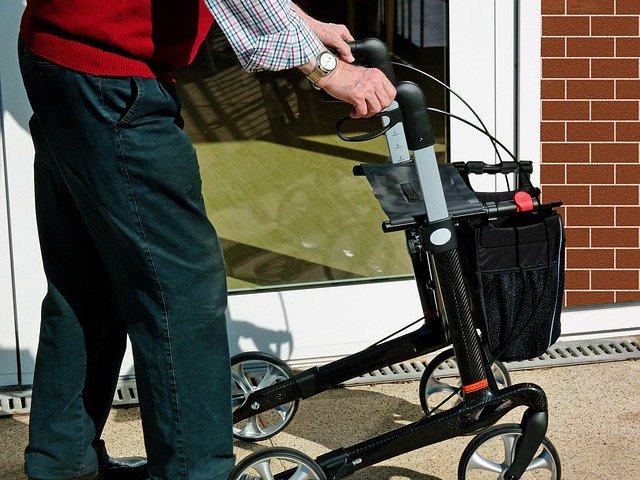2025 Guide to Finding a Dentist for Seniors
Finding the right dental provider can support long-term comfort, communication, and consistent care. This 2025 guide helps seniors and their families understand what to look for when choosing a dentist, from accessibility and service range to everyday needs.

What qualifications should you look for in a senior-friendly dentist?
When searching for a dentist who specializes in caring for older adults, it’s important to consider their qualifications and experience. Look for dentists who have completed additional training in geriatric dentistry or have a significant portion of their practice dedicated to senior patients. Board certification in geriatric dentistry is a strong indicator of expertise in this field. Additionally, seek out dentists who stay current with the latest advancements in dental care for seniors through continuing education courses and professional memberships in organizations like the Special Care Dentistry Association.
What questions can guide seniors during the dentist selection process?
Asking the right questions can help you find a dentist who meets your specific needs. Consider inquiring about the following:
-
Do you have experience treating patients with conditions common in older adults, such as dry mouth or arthritis?
-
How do you accommodate patients with mobility issues or cognitive impairments?
-
What is your approach to preventive care for seniors?
-
Can you explain how you handle dental emergencies for older patients?
-
Do you offer sedation options for anxious patients or those undergoing complex procedures?
-
How do you coordinate care with other healthcare providers, such as primary care physicians?
These questions will help you gauge the dentist’s expertise and approach to senior dental care.
What are some essential dental care tips for older adults in 2025?
Maintaining good oral health is crucial for overall well-being, especially as we age. Here are some key dental care tips for seniors in 2025:
-
Brush twice daily with a soft-bristled electric toothbrush and fluoride toothpaste.
-
Floss daily or use interdental cleaners to remove plaque between teeth.
-
Use an alcohol-free mouthwash to combat dry mouth and reduce bacteria.
-
Stay hydrated to maintain saliva production and prevent dry mouth.
-
Attend regular dental check-ups and cleanings, typically every six months.
-
Be mindful of medications that may affect oral health and discuss them with your dentist.
-
Consider using high-tech oral care devices, such as water flossers or AI-powered toothbrushes, which have become more advanced and user-friendly for seniors.
What should seniors know about dental insurance and payment options?
Understanding dental insurance and payment options is crucial for seniors managing their oral health care costs. Many Medicare Advantage plans now offer dental coverage, but traditional Medicare typically doesn’t cover routine dental care. Seniors should explore standalone dental insurance plans or discount dental programs designed specifically for older adults. Some dentists offer in-house membership plans or sliding scale fees for those without insurance.
How can seniors find dentists specializing in implants and other advanced procedures?
For seniors considering dental implants or other advanced procedures, it’s important to find a dentist with specific expertise in these areas. Look for dentists who are members of professional organizations like the American Academy of Implant Dentistry or have completed postgraduate programs in implantology. Ask about their success rates with implant procedures and request before-and-after photos of previous patients. Additionally, inquire about their use of advanced technologies such as 3D imaging and guided implant placement, which can improve outcomes for senior patients.
What accessibility features should seniors look for in a dental office?
When choosing a dental office, seniors should consider accessibility features that can make their visits more comfortable and manageable. Look for practices that offer:
-
Ground-floor locations or easily accessible elevators
-
Wide doorways and hallways to accommodate mobility aids
-
Comfortable seating options in waiting areas
-
Adjustable dental chairs that can accommodate various mobility needs
-
Good lighting and clear signage throughout the office
-
Handicap-accessible restrooms
-
Parking spaces close to the entrance or valet parking services
| Dental Service Provider | Specializations for Seniors | Key Features |
|---|---|---|
| Gentle Dental Care | Implants, Dentures, Preventive Care | Sedation options, Wheelchair accessibility |
| Senior Smile Specialists | Full Mouth Reconstruction, Gum Disease Treatment | In-house lab for same-day repairs, Home visits |
| Golden Years Dentistry | Implants, Cosmetic Dentistry, Oral Cancer Screening | Advanced 3D imaging, Geriatric-focused staff |
| Comfort First Dental | Dentures, Implants, Emergency Care | Extended appointment times, Mobility assistance |
| Elder Wellness Dental Group | Preventive Care, Implants, Sleep Apnea Treatment | Coordinated care with physicians, Teledentistry options |
Prices, rates, or cost estimates mentioned in this article are based on the latest available information but may change over time. Independent research is advised before making financial decisions.
In conclusion, finding the right dentist as a senior involves careful consideration of qualifications, services offered, and practice features that cater to older adults’ needs. By following this guide and asking the right questions, seniors can ensure they receive high-quality, comfortable dental care that supports their overall health and well-being in 2025 and beyond.




